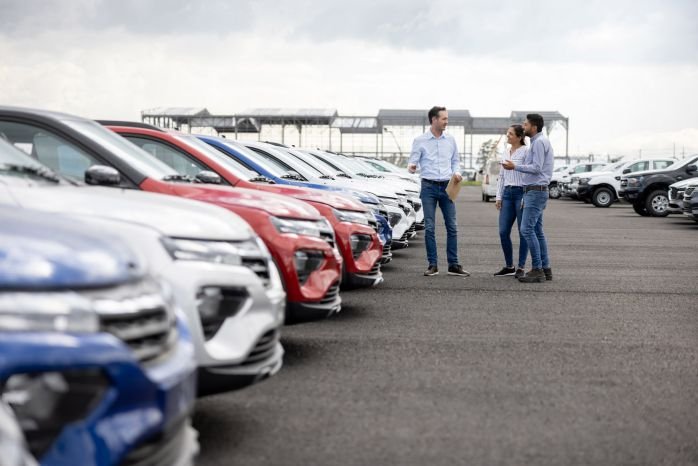As someone who has purchased several used vehicles over the years, I’ve learned the importance of going into the process prepared and doing your research. While buying pre-owned can save money compared to new, there are additional factors to navigate. In this article, I’ll break down the key things any smart car buyer must evaluate to ensure a smooth purchase experience and feeling good about their selection for years down the road. Here are 10 Things To Consider Before Buying a Used Car

1. Budget
Establish how much you can afford to spend upfront and per month for financing before shopping. Know your target payment and have your pre-approval in hand. Set limits and stick with realism to avoid commitment overreach.
2. Vehicle History and Reputation
Run a vehicle history report to check for accidents, recalls, or odometer rollbacks. Research common issues online for that make/model year too. If problems keep popping up or a car has been in multiple accidents, reconsider that one no matter its price.
3. Touch, See, Feel, Smell, Listen
Visually inspect paint, body, glass, tires, and undercarriage for rust, dings, wear. Check gaps and seams. Operate all features. Feel for smooth shifting and listen for odd sounds idling and accelerating. If the interior smells funny or there’s deterioration, pass it by.
4. Pre-Purchase Inspection
Have an independent mechanic thoroughly inspect any finalist before purchase. Their expert eyes will catch problems unseen to the untrained and flag expensive projected repairs for you that could eat into ownership costs. Pay the $100 for peace of mind.
5. Lifestyle
Consider your normal driving needs in terms of cargo room, passenger space, towing capacity if applicable. Evaluate features relative to how you’ll use the vehicle. An impractical choice will breed future buyer’s remorse.
6. Financing
Decide if paying in cash, financing through the seller, or an outside lender is best based on offers, interest rates, and terms. Know contracting insider tips so you don’t get taken for unnecessary extras in documents. Comparison shop for best options.
7. Know Your Rights
Educate yourself on lemon laws and refund or exchange entitlements if a used purchase turns defective very shortly after. Understand cooling off periods and stipulations for returning a car as well. Knowledge empowers you.
8. Warranty
Negotiate an extended service plan if none exists or is transferable. Extra coverage hedges against unplanned costs down the road from unexpected issues. Read warranties thoroughly and don’t count on them for regular maintenance.
9. Insurance
Verify you can insure the vehicle as desired, like liability only vs full coverage based on age/value. Shop premium quotes in advance so budgeting is accurate. Read policy fine print too for full transparency on what is and isn’t covered.
10. Ownership and Car Title
Ensure proper titling and registration transfer takes place during sale finalization. Get all prior owner signatures and documents squared away clean and legal to avoid headaches trying to establish proof of ownership later. A reputable dealer handles this easefully.

Additional tips to consider when buying a used car
Here are some additional tips to consider when buying a used car:
- Test drive under varying conditions – Try it out on the highway as well as in busy urban areas to get a feel for how it handles different road conditions.
- Check for accident history – Run the VIN through sites like Carfax to check if the vehicle has been in any previous accidents. Even minor accidents could reveal bigger underlying issues.
- Inspect wear items – Take a close look at tires, brake pads/shoes, wipers etc to check their overall condition and estimate their remaining life. These are items that typically need replacing.
- Review maintenance records – Look for documentation showing services were done on schedule. It reveals how well the previous owner cared for the vehicle.
- Consider vehicle age and mileage – Try to buy one that’s not too old (>7-8 years) or with extremely high mileage (>150k miles). Parts will start to wear out more after these points.
- Ask about recent repairs – Find out if anything expensive has been fixed recently and why. Could indicate bigger problems down the line.
- Check for aftermarket parts – These can be a red flag, especially on performance/luxury cars. Stick to vehicles with factory or authorized replacement parts.
- Give it a cold start test – Check how long it takes for the car to start up and run smoothly in colder weather. Can expose issues with battery, starter etc.
- Consider latest technology/safety features – Check if it has important mod cons like backup cam, blind spot monitoring you require. Safety gear can improve resale value down the line.
By doing diligent research in each of these crucial areas before car shopping, you set yourself up for a smarter buying process, greater confidence in your selection, and a smoother long term ownership experience. Let me know if any other pre-purchase questions arise!














